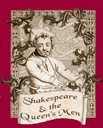 Our Lives in Digital Times is a report just out from Statistics Canada. A summary is available from The Daily of Friday, November 10, 2006.
Our Lives in Digital Times is a report just out from Statistics Canada. A summary is available from The Daily of Friday, November 10, 2006.
The 23 page study reports:
The paperless
office is the office that never happened, with consumption of paper at an all-time high and the business of transporting paper thriving. Professional travel has most likely increased during a period when the Internet and videoconferencing
technology were taking-off, and; e-commerce sales do not justify recent fears of negative consequences on retail employment and real estate.The paper further demonstrates that some of the key outcomes of ICTs are manifested in changing behavioural patterns, including communication and spending patterns. People have never communicated more, something exemplified by the explosion in international calling and the massive amounts of e-mails and other electronic communications. (“Abstract”, p. 4)
Information and communication technologies (ICTs) are not having the predicted effects of erasing distance, creating a paperless office, ending retail, or finishing off surface mail.
The paperless society, the end of mail, the end of traditional retail and numerous other such proclamations have all been grossly exaggerated with quantification at this point in time proving them faulty.more wrong. This conventional wisdom came crashing down from the very early stages of opening up the markets. (p. 11)
Instead ICTs are enabling talk – “people communicate more than ever and their patterns of associations are wider” (p. 17). ICTs are not helping us withdraw, they are letting us spread out (sometimes too thin.)
It is interesting to note that “This paper represents a new direction in Information Society research and analysis, in an attempt to begin to address the socio-economic outcomes and impacts of ICT.” (“Note to readers”, p. 6)
 The design firm
The design firm 



 I went to the first Hamilton performance of the
I went to the first Hamilton performance of the